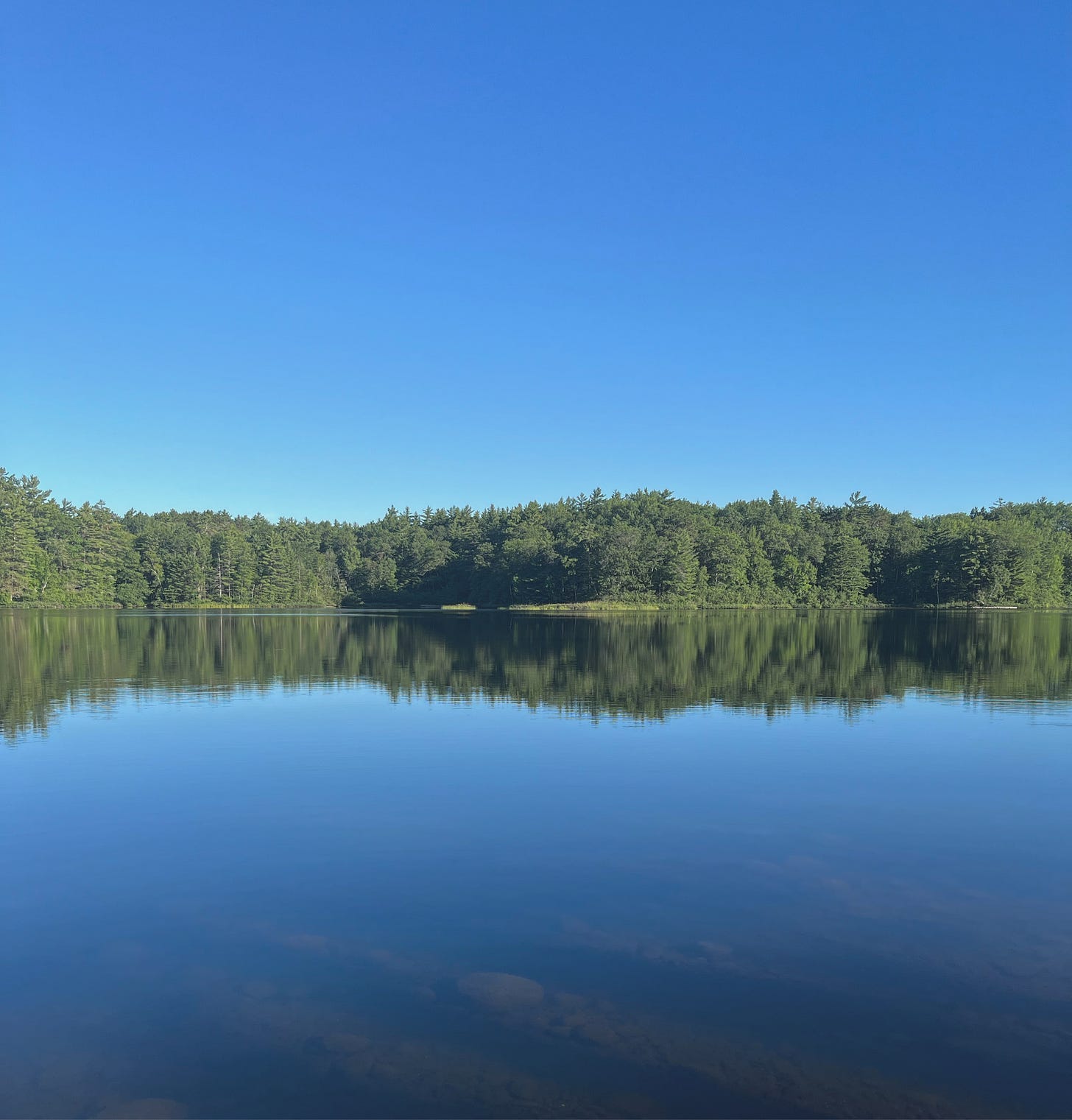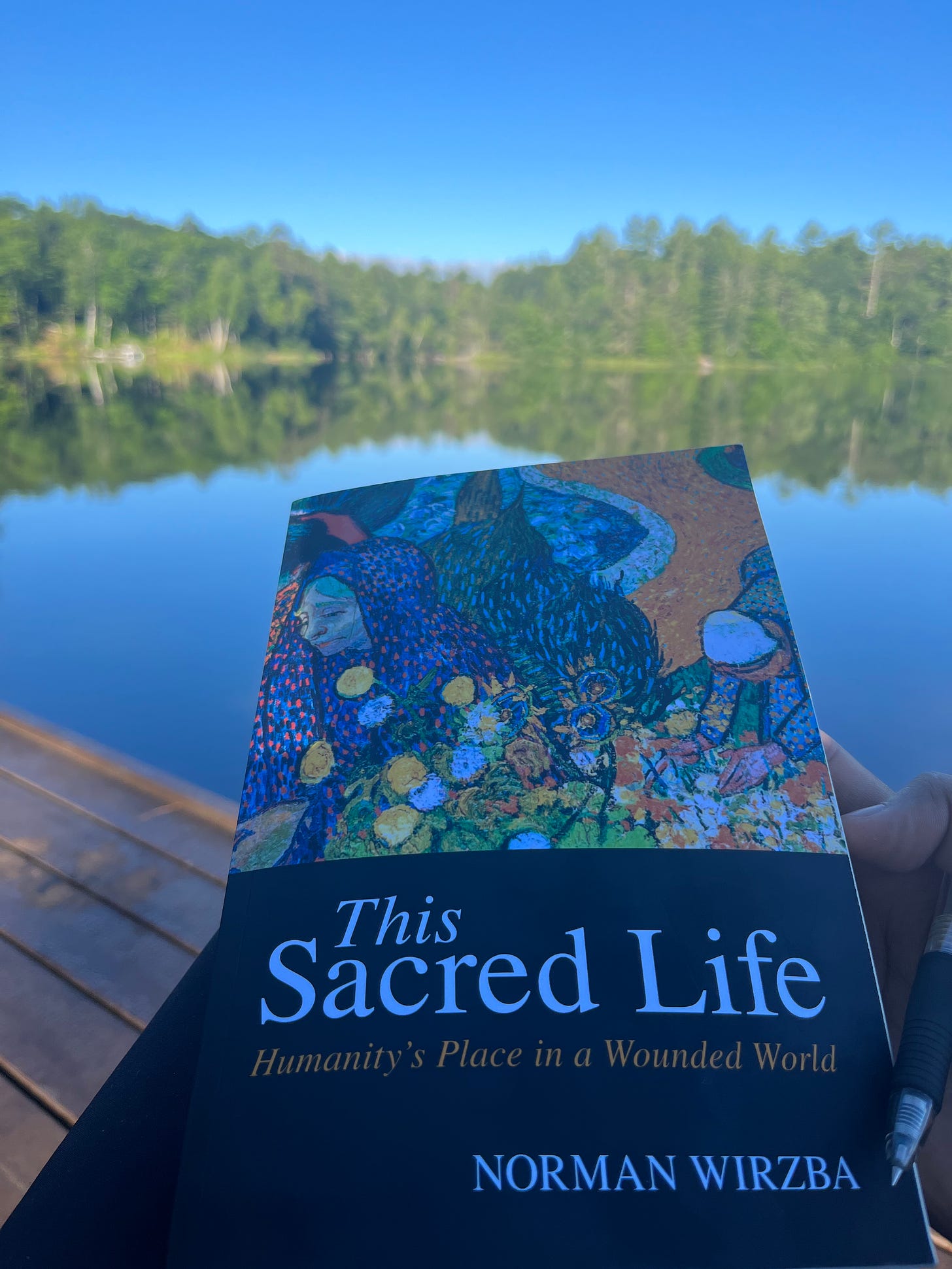Last week Emily and I spent a few days in the Northern woods of Wisconsin on the lands of the Ojibwe people. Filled with interlocking lakes, tall trees, and unpolluted early morning sun, there is something in the fresh and clean air coming off the water that fills one’s bones with delight.
What came to mind sitting by the water one day with a cigar in hand was the majestic beauty of God’s creation (a fairly obvious insight). But then, as I sat longer and my cigar grew proportionally smaller, I thought more about the creation story.
Why do creation stories matter? Why are they so important?
I remembered what Norman Wirzba wrote in his book This Sacred Life:
To communicate the sacred character of reality, people have often told stories about the creation of the world. The focus of creation stories … is not the mechanics of making but about establishing the point or purpose of why anything exists at all.1
For the Christian, Genesis 1-2 is not a scientific account of the creation of our universe. To study the text as such is to miss the very point being made by the author(s). Our creation story, rather, is a key—a metaphysical and hermeneutical map for orienting ourselves to the world around us and locating ourselves within it. This is a world that God creates, sustains, animates, and calls fundamentally good.
Regarding this Genesis account, Wirzba also discusses the concept of creation ex nihilo (out of nothing). He argues that we functionally think of ex nihilo as a nothing-thing. This is because, in our scientific readings of the creation account, no framework exists that can reconcile the creation of something out of nothing. Nothing must, at least functionally, be something (even if that something is God).
However, God—a Spirit, a no-thing—creates ex nihilo out of God’s self. In other words, the Genesis creation account testifies to God’s creation of something out of God’s no-thing self. This no-thing, Wirzba argues is love. God creates ex amore.2
In his book The Beauty of the Infinite, David Bentley Hart insists that, “For Christian thought … delight is the premise of any sound epistemology: it is delight that constitutes creation, and so only delight can comprehend it, see it aright, understand its grammar. Only in loving creation’s beauty – only in seeing that creation truly is beauty – does one apprehend what creation is”3
Both Wirzba and DBH remind me that the current of the river, the leaves shading the ground and roots buried deep under my feet all testify to God’s loving act of creation that reverberates throughout the world. It is the duty of the Christian to bear witness to this truth in joy and delight.
Reading:
The Overstory — Richard Powers
Earth Filled With Heaven: Finding Life in Liturgy, Sacraments, and other Ancient Practices of the Church — Fr. Aaron Damiani
Watching:
Facing the Anthropocene Series: A Conversation with Norman Wirzba (Youtube)
Kuyperianism for a New Age: Shadi Hamid and Matthew Kaemingk on the relevance of Abraham Kuyper to our time (Youtube)
Listening:
Brace - Brian Bulger
Grace - Marcus Mumford
“The Diversity of Evangelicalism pt. 2” - Shreya and Yanan’s Podcast (Spotify)
Norman Wirzba, This Sacred Life: Humanity’s Place in a Wounded World (Cambridge University Press, 2021), 144.
Wirzba, 165.
The Beauty of the Infinite: The Aesthetics of Christian Truth (Grand Rapids, MI: William B. Eerdmans Publishing Company, 2003), 253.







"Revelation is orientation." -Eugen Rosenstock-Huessy
I love this post Amar! Has a very similar feel to work I was doing on my MA thesis on Gen 1-3 as a liturgical framework model.
I love this provocative lengthy reflection of Clinton C. Gardner on ERH's statement when he says, "Prayer in this larger sense is not like reaching up to be in touch with an all powerful Divine Father who can advise, guide, intervene, and save. Instead, it is like centering oneself at a place where one's interior life meets one's task in the exterior world, and like drawing strength from one's own past, and the past of the whole race, as one seeks to find the way into a meaningful future. At this center of the cross in which we live, God reveals himself to us. Revelation becomes a new orientation to the times of our personal history and all history, just as it becomes a new orientation of our inner self to the world outside us."
There is certainly a whole bibliology to be fleshed out there, but your reflections made me think of this.